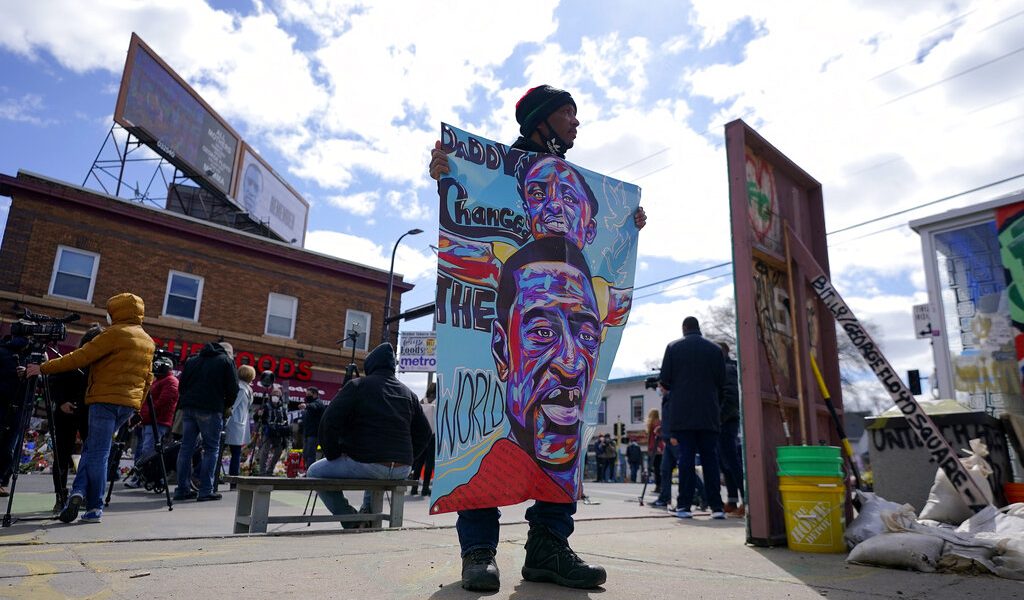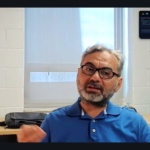Some faculty and students at Texas A&M University-San Antonio say they are conflicted following the Derek Chauvin verdict.
Chauvin, a former Minneapolis police officer, was convicted April 21 on all counts of murder and manslaughter in the death of George Floyd. He was charged with second-degree unintentional murder, third-degree murder and second-degree manslaughter in kneeling on Floyd’s neck for more than nine minutes.
The verdict was read one day after jurors began their deliberation, according to CNBC.
“There was a guilty verdict, and family members in some ways can receive some type of closure,” said Dr. Nicole Carr, assistant professor of African American Literature. “Although I do question the second-degree unintentional murder because I don’t know how kneeling on someone’s neck can be unintentional.”
Carr said considering how Black people have been treated historically, she doesn’t feel like it is justice.
“I don’t think this guilty verdict can erase centuries of injustice Black people have went through and experience at the hands of police officers or elected officials,” she said.
Carr also said the reason the George Floyd case caught so much attention out of the numerous incidents of police brutality against Black individuals is due to people being home more during the pandemic.
“When we saw this video of George Floyd being essentially killed, there was a way in which we could not look away; we had to grapple with it,” Carr said in a phone interview on April 23. “Americans have been home a lot more and that’s why it captured a lot of attention.”
Carr said there is a desire to see Black people being brutalized.
“I also think there’s a way that seeing Black people being hurt and harmed,” she said. “People want to see that like entertainment.”
Criminology senior Tanya Romo said she thinks the second-degree murder conviction may be questionable. While Chavin was using excessive force, she said she believes he did not kneel on Floyd’s neck with the knowing intent to kill him.
For the second-degree unintentional murder conviction, prosecutors had to see “beyond reasonable doubt” that Chauvin caused Floyd’s death, according to the Star Tribune.
“With full respect to George Floyd and the family, I think assuming that this ex-police officer responding to a call and saw a Black male then had the intent to kill him may be an excessive charge,” Romo said in an interview on campus April 22. “Yes, what he did was wrong, but I think it comes down to lack of training.”
Romo said she does think the third-degree murder and second-degree manslaughter convictions were justified.
However, it’s unusual to get any sort of conviction in such cases, according to research.
A recent CNN article included comments from a criminal justice researcher who found that police officers rarely receive guilty verdicts in cases of on-duty shootings.
At least 140 law enforcement officers have been arrested on murder or manslaughter charges related to on-duty shootings in the U.S. since 2005, Philip Matthew Stinson, a criminal justice professor at Bowling Green State University in Bowling Green, Ohio, told CNN.
Stinson leads a team at the Henry A. Wallace Police Crime Database that tracks data on police crimes.
By collecting and tracking data from news, media and court records across the country, Stinson’s goal was to show a glimpse of how rare charges involving these offenses get convicted, according to the CNN story.
From that pool of 140 reported cases, about a third were convicted on any charges. Even fewer were found guilty of murder.
“Seven officers – just 5% – have been convicted of murder during that same time frame,” according to the CNN article.
Chauvin’s conviction is a start, but nowhere near the end of this fight, said former Student Government Association President La-Tieka Sims.
“I feel like people feel more empowered, people feel more motivated to raise their voice. Do I feel like the change has happened? Not yet,” said Sims, who last year wrote a poem called “Black Summer” expressing her frustrations seeing so many unarmed people of color being killed at the hands of the police.
Sims, who graduated in December 2020 as an international business major, read her poem at the fall 2020 convocation, a virtual and in-person event.
“I do feel like incremental change is happening,” Sims said.
“I’m excited,” Sims said “I am happy in a sense about the verdict in the Derek Chauvin trial. But, I can’t dismiss the fact that while the verdict was being read Ma’Khia Bryant was being shot. A 16-year-old girl who called the police for help was shot four times in the chest. I can’t dismiss that.”
Shortly before Chauvin’s verdict was read, Bryant was fatally shot by Columbus, Ohio, police who were responding to reports of an attempted stabbing.
“It was a very abrupt reminder that the fight isn’t over,” Sims said in a Zoom interview April 23.
President Cynthia Teniente said she foresees the next waves of A&M-San Antonio graduates creating change in the world.
“As a university community, we have to come together and move forward in accountability,” Matson said. “We need changed leaders and accountability agents who are going to help move the needle in workforce development but also on racial injustice and social injustice.”
Chauvin is scheduled to be sentenced June 16.
The Mesquite contacted A&M-San Antonio’s Black Student Union last week for an interview, but the president was not available before The Mesquite’s deadline.
Veronica Valdes contributed to this story.






